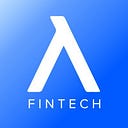What is Blockchain Bloat?
by Marvin Dumont
More adoption is good for any cryptocurrency. But more transactions also means an immense amount of data are transmitted and immutably stored on the blockchain.
Bloat creates problems such as how to permanently store trillions or more of blocks on-chain, as well as how to transmit and/or download the chain within a reasonable timeframe.
As use of blockchain grows, these challenges will be pervasive. Networks may become unstable, and it may necessitate increasing the block size. The media may spread FUD which could lead to negative pressure on crypto valuations.
Apollo’s solution is groundbreaking sharding protocol. According to Sergey Rokhvarg, chief technology officer of Apollo Foundation:
Sharding allows you to download the blockchain much faster, and it reduces the cycle-time of operations as well as lowers the needed disk space. Apollo sharding is a trailblazing innovation that is not implemented in most cryptocurrencies. Our developers anticipate potential issues in order to prevent them.
Bloat can have different consequences for different networks. But it may result in lengthy synchronization times between a wallet and network, and it may impact transaction fees (making them more expensive).
Steve McCullah, director of business development, says:
With the release of sharding, APL becomes the world’s ultimate currency — the fastest and most feature-rich crypto, as well as, the most sustainable blockchain available. Through sharding and adaptive forging, APL is among the first cryptocurrencies to solve blockchain’s vital challenge of sustainability.
Sharding can reduce the size of a ledger database. Other mainstream projects have so far been unsuccessful at creating the protocol-level solution.
Ethereum’s Vitalik Buterin said earlier this year:
The fact that improving this stuff is critical has been known since late 2016, the ideas have been floating around for half a year to over a year. Where are the implementations? At the current growth rate it’s predictable that the state is going to grow very fast this year, to a point where it would be hardly manageable on small devices.
Depending on how it’s implemented, sharding can split up the database into digestible parts that are each stored at different nodes.
Sergey Rokhvarg, Apollo CTO, says:
An increasing number of transactions leads to a constant increase in the Apollo database. This process goes faster with shorter block time. Blockchain requires full access to the ledger from the beginning to current time to verify each transaction, but this task does not run every time. Most operations require lesser parts of an entire database.
Apollo (APL) all-in-one privacy currency combines features of mainstream cryptocurrencies in a truly private and unregulatable platform. With two-second block speed, APL is one of the fastest cryptos on Earth. The privacy platform lets “Apollonauts” transact and send data anonymously via Encrypted Messaging, Private Ledger, Decentralized Exchange, IP Masking 2.0 and Coin Mixing. Learn more at www.apollocurrency.com
